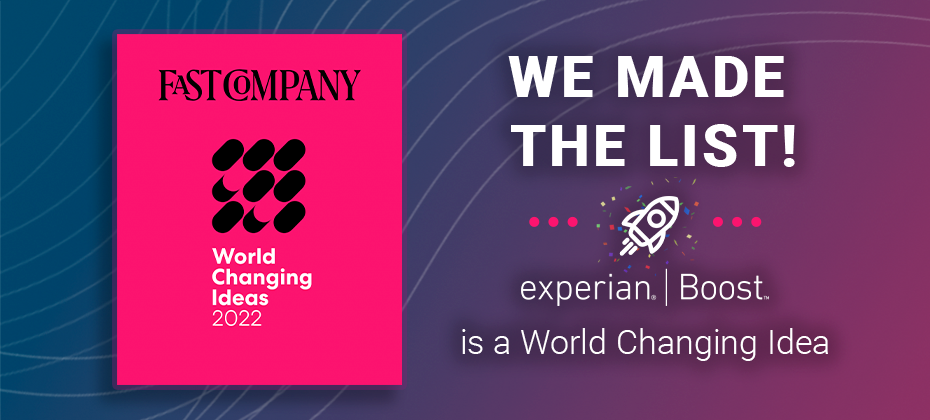
Mental health problems remain a huge issue, so it’s essential that employers are set up to support their employees who may be struggling. Also every organisation depends on having healthy and productive employees, with valued and supported staff far more likely to perform better and achieve peak performance. At Experian we have been working hard to ensure everyone can get that support, and that we are constantly evolving and improving. That’s why I’m proud to announce that we have been recognised with a Gold Award in Mind’s sixth annual Workplace Wellbeing Index. I think this is a huge achievement as it signifies the progress we’ve already made as an organisation in recent years – ensuring mental health is embedded into our policies and practices, and demonstrating our long-term and deep commitment to our employees’ mental health. Mind’s Workplace Wellbeing Index is a benchmark of best policy and practice, celebrating the good work employers are doing to promote and support positive mental health, and importantly also providing key recommendations on the specific areas where there is room to improve. This award demonstrates that we are on the right track, but we won’t stop here. We’re always looking for new ways to do things and to improve as a business. We are committed to driving towards even better ways of working, where supporting the mental health of our people is a fundamental part of everyday business. Andrew is the UK & Ireland Mental Health Sponsor & Managing Director of Experian Data Quality

We welcome this week’s response by the UK Government in relation to its work on the new UK Data Strategy, and the commitment to creating a new UK Data Act. Innovative data use has a crucial role to play as Britain takes its place on the global stage. Data has the ability to change people’s lives for the better. It can help build a stronger, smarter future, whether that is through existing products and services or by enabling new and innovative solutions to the problems people and society face today. We share the Government’s goal of using data to deliver better outcomes for people across the UK, and to supercharge its economic success. Already today we see data doing great good in the world: it is enabling the deployment of resources from charities and Government where they are most needed; reducing the number of credit-invisible people and combatting loan sharks; preventing fraud and supporting those who fall victim to fraudsters; and delivering unique new insights that set creators and entrepreneurs on the path to their next success. Data played a transformative, positive role in people’s lives during the pandemic, and has the potential to do so much more as we look to the future. It is crucial that data is used and managed within a trusted, privacy centric framework, and that we as industry and Government together continue to educate and empower people to understand how their data is used, and to be confident in its security. Properly-consented, properly-secured data can empower people; it can support the vulnerable; it can help expand and accelerate our economy. We have the talent, the drive and the ambition in Britain to do all of these things. The new framework sets a foundation to enable and empower, making Britain a desirable hub for investment; a great place to work and build a career; an ideal place to begin new ventures or find funding for existing ones. With the right foundations in place, the opportunity ahead will be limited only by our imaginations. For all of these reasons, Experian welcomes the Government’s goal of making this leap forward for the UK, and we look forward to seeing the detail of the new Data Act as it is released in the coming months.

We often share at Experian that we want to be an organisation where people are free to be their true selves and have an equal chance to succeed, a place where everyone is celebrated for bringing their whole selves to work. When our colleagues thrive, they innovate, and contribute to the future of the business. It is in this spirit we welcome you to The Power of You: 2022 Diversity, Equity and Inclusion Report. Our second edition is really an evolution. For the first time, we are introducing our global DEI framework and our focus on people, clients and consumers, and the communities in which we live and work. We’re proud to be recognised as a Great Place to Work, as 90% of our colleagues agree Experian people are treated fairly regardless of their social and economic status, sexual orientation, race or gender. In this report, you’ll see examples of the efforts we’ve made over this last year including the work towards gender equity. Our target is for 40% of our senior leaders to be women by 2024. We have engagement programs to encourage women into STEM roles within the business, while the appointment of Malin Holmberg as CEO of our EMEA and Asia Pacific business alongside the promotion of Jennifer Schulz to CEO of our North America business has increased our percentage of senior female leaders. Beyond strengthening our own processes in promoting DEI, we’re partnering with organisations such as Disability:IN, Code First Girls and the National Urban League to help underserved communities gain fair and equitable access to credit and financial resources. More broadly, we are continuing with our United for Financial Health programme. So far, we’ve connected with 87 million people since 2020 and remaining on track to connect with 100 million people by 2024. We were named in Fortune’s 2021 ‘Change the World’ list for our work to improve financial health. Our aim is to be force for good. This is at the heart of our purpose exemplified by all of our 20,600 employees across 43 nations: to create a better tomorrow for consumers, our clients, our people and communities. Please find our latest DEI report in full here.

Experian is a company built on purpose. Every day we help people make the most of their data to improve their financial lives. This is what drives us and you can read more about our progress in our inaugural Improving Financial Health report. It is our social mission to improve financial inclusion, because fair and affordable access to credit enhances opportunities in life. While we are proud of our achievements this year, we know there is more to do. Over a third of the global adult population still lack access to basic financial services, while one billion people don’t have official proof of identity. 1.7 billion people are also completely ‘unbanked’ and risk being overlooked by the entire global financial services system. And this problem exists everywhere. More than 63 million people in Brazil have unmanageable debts that are affecting their credit rating. Whereas in the US, 28 million consumers are ‘credit invisible’ and an additional 21 million consumers have “unscorable” credit files, meaning they have what’s considered a thin credit file or limited credit history. Much of this comes down to provision of appropriate education and knowledge around good financial management, alongside the tools and products that can empower people in gaining access to fair, affordable credit. Through our community investment programme, we have provided vital support to communities, which was reflected by our colleagues volunteering nearly 25,000 hours of their time over the last year. This is in addition to an investment of US$15.9m in programmes that support our communities, including enhancing financial literacy with partners in Brazil, the USA and the UK & Ireland. Examples here include financial literacy support for microentrepreneurs through Sebrae in Brazil, Words That Count with the National Literacy Trust and Number Confidence Week with National Numeracy in the UK, alongside partnerships in the USA with the National Urban League, Operation Hope and Saver Life which aim to empower Black Americans through financial education. In addition, our social innovation products reached over 21 million people this year, offering innovative ways to verify identity and to strengthen credit profiles. It is our aim to help everyone have fair access to finance, no one should miss out on the opportunities which can transform lives. As the current inflationary environment adds extra pressure on households around the world, we recognise the significance of the role we can play to help ensure people can get through this period of financial pressure. Our new report outlines the progress we have made and restates our commitment to helping everyone improve their financial health in the future. Please read more in the Improving Financial Health Report.

We are delighted to celebrate Pride Month this June, and to mark the progress we are making to support our LGBTQ+ colleagues and communities around the world. A few of our milestones this year include: The addition of trans-inclusive healthcare to our UK and U.S. employee benefit packages. Receiving a Silver Award from Stonewall for our commitment to inclusion of LGBTQ people in the workplace. The continued use of our partnerships with Mermaids, Switchboard and Terrence Higgins Trust (THT) to provide resources, offer workshops and support campaigns that raise awareness of the discrimination faced by the community worldwide. Becoming a signatory of the Brazil Corporate Forum for LGBTQA+ companies. Participating in the first diverse talent recruitment fair organised by the Colombian LGBT Chamber of Commerce. Achieving a 100% rating on the Corporate Equality Index from the Human Rights Campaign Foundation in the U.S., and being designated a Best Place to Work for LGBTQ Equality for the fourth consecutive year. Providing a process to assist trans and non-binary consumers with name changes to their Experian credit reports. Throughout the month, employee groups across our regions are hosting events that support our LGBTQ+ employees in their careers, that educate and inform allyship inside our business, and which help accelerate our ambition of delivering tools and services that create better financial health in the community. And yet, while we celebrate, we recognise that the LGBTQ+ community still faces many forms of discrimination around the world. We will continue to look for opportunities to support our Experian colleagues and customers who identify as part of the LGBTQ+ community, and to listen to those with lived experiences, so that we can better understand the role we can play in creating a better tomorrow and a stronger organisation – for everyone.

Two of Experian’s core values – innovation and financial inclusion – are on full display with Experian Boost™ being selected for Fast Company’s 2022 World Changing Ideas Awards, which celebrates the “broadest ideas … that have the potential to affect true systems change.” Experian Boost is a first-of-its-kind service designed to help consumers improve their credit profile and thrive financially. Nearly 9 million people have connected the service to report their on-time utility, telecom, and video streaming service payments. The service tackles inequity and exclusion from the credit economy by enabling consumers to add positive payment history that reinforces their personal financial reliability directly into their Experian credit file, which can potentially boost their credit score instantly. At Experian, we continually focus on expanding credit to underserved communities. Most recently we introduced Experian Go™, a brand-new program that can potentially help the nearly 50 million people in the United States who have a nonexistent or limited credit history. This Fast Company recognition also reflects our purpose and innovative culture focused on creating products and solutions that help consumers thrive, including Experian Boost in the UK and Serasa’s Score Turbo in Brazil. Every day at Experian we are investing in new technologies, talented employees, and innovation to help consumers and our clients maximize every opportunity we have to offer.


